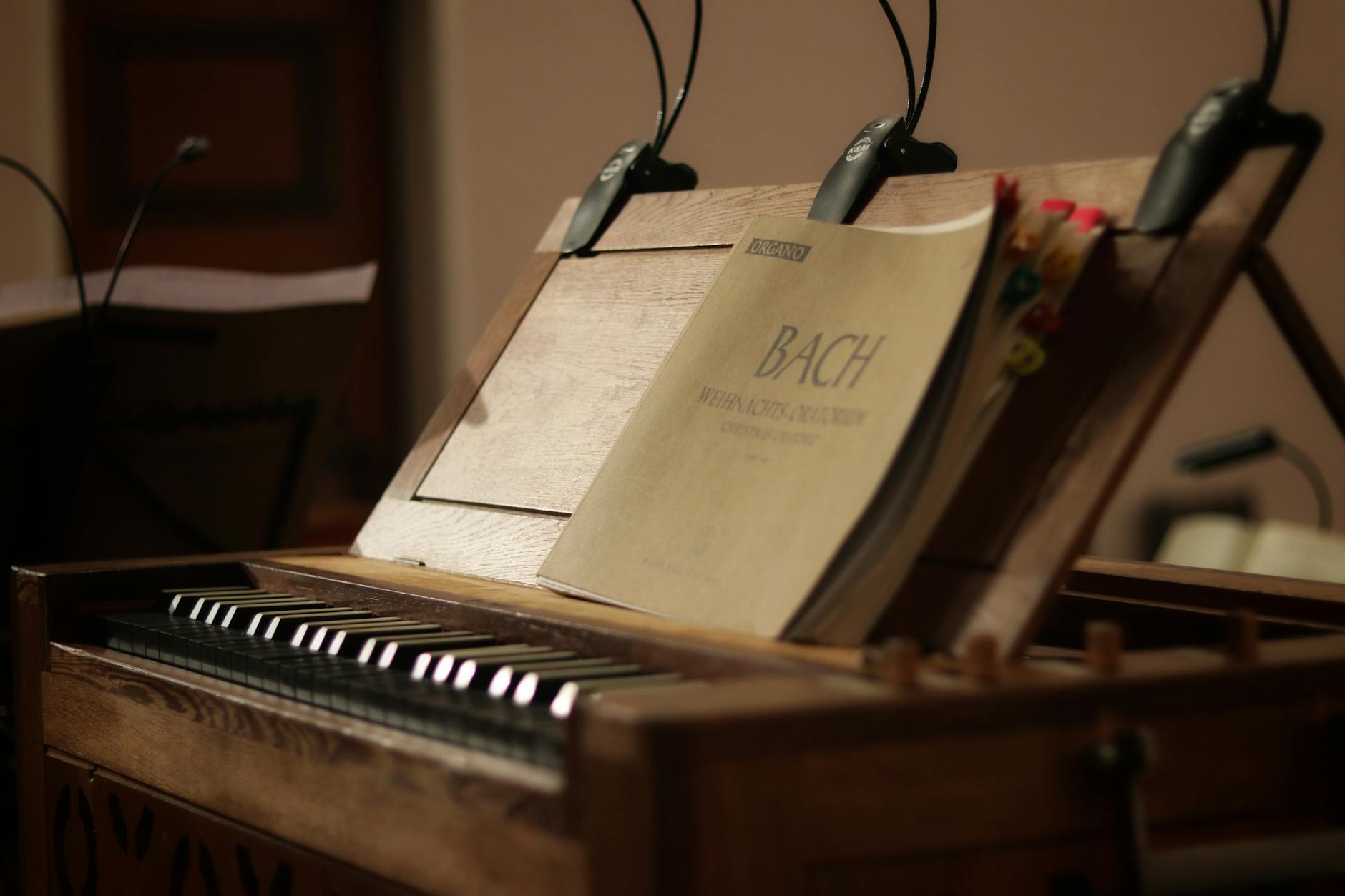Piano learning isn’t just about tickling the ivories to your favorite tune. There’s a whole world of science that dives deep into how your brain benefits from playing. So, sit tight and get ready to explore the wonderful ways our grey matter grooves when we’re hitting those keys!
First off, did you know that playing the piano can actually make you smarter? Yup, that’s right! When you’re mastering Mozart or perfecting your own piece, you’re not just making music. You’re boosting your brain power, too. It’s like your own personal gym workout… but for your brain. And the best part? You don’t even need to break a sweat.
So, whether you’re a seasoned pianist or just starting out on your musical journey, stick around. We’re about to take a deep dive into the fascinating science behind piano learning. It’s a symphony of synapses and a concert of cognition, all playing out inside your head. Tune in and turn up the volume. It’s time to boost your brain with every note!
The Brain and Piano Learning
Are you ready to dive into the fascinating world of piano learning and discover how it affects your brain? In this section, we’ll explore the science behind how the brain processes music, the concept of neuroplasticity in relation to piano learning, and the amazing benefits that playing the piano has on our cognitive abilities.
How the Brain Processes Music
 Serious fit woman in earphones and activewear listening to music and running on treadmill in light contemporary sports center (Photo by Andrea Piacquadio)
Serious fit woman in earphones and activewear listening to music and running on treadmill in light contemporary sports center (Photo by Andrea Piacquadio)
Have you ever wondered what happens in your brain when you listen to or play music? Well, let’s take a peek inside! When we engage with music, various areas of our brain light up like a symphony orchestra. The auditory cortex, located in the temporal lobes, helps us process the sounds we hear, while the motor cortex, situated in the frontal lobes, plays a crucial role in coordinating our movements when we play an instrument.
But that’s not all! Music also triggers the release of dopamine, a neurotransmitter associated with pleasure and reward. This explains why we feel a sense of joy and satisfaction when we’re fully immersed in a beautiful melody or creating our own musical masterpiece. So, the next time you hear your favorite song, remember that it’s not just your ears enjoying the music; it’s your brain too!
Neuroplasticity and Piano Learning
 Faceless person covering face with empty photo frame (Photo by Monstera)
Faceless person covering face with empty photo frame (Photo by Monstera)
Now, let’s talk about the concept of neuroplasticity and how it relates to piano learning. Neuroplasticity refers to the brain’s remarkable ability to reorganize itself by forming new neural connections throughout our lives. It’s like a musical composition where the brain constantly adapts and adjusts to new experiences and learning.
When you learn to play the piano, your brain undergoes significant changes. As you practice and develop your skills, new neural pathways are created, connecting different regions of the brain involved in motor control, auditory perception, and memory. This rewiring of the brain enhances your ability to process music, improves hand-eye coordination, and strengthens cognitive functions.
Benefits of Piano Learning on Cognitive Abilities
 Photo Of Girl Playing Piano (Photo by RDNE Stock project)
Photo Of Girl Playing Piano (Photo by RDNE Stock project)
Now, let’s explore the incredible benefits that piano learning can have on our cognitive abilities. Playing the piano is like giving your brain a full workout session!
- Enhanced memory: Learning to play piano requires memorization of notes, chords, and melodies. This exercise strengthens your memory capacity, making it easier to remember everyday tasks.
- Improved focus and concentration: Playing the piano demands your full attention. As you practice, you train your brain to focus for extended periods, which can translate into improved concentration skills in other areas of your life.
- Heightened creativity: When you sit at the piano, you have the freedom to explore your creativity and express yourself through music. This fosters imaginative thinking and encourages you to think outside the box.
- Stress relief: Music has a magical way of soothing the soul, and playing the piano can be a fantastic stress reliever. The rhythmic movements and melodies can help you relax, unwind, and escape from the pressures of everyday life.
- Boosted problem-solving skills: Learning to play the piano involves analyzing musical patterns, deciphering sheet music, and coordinating different hand movements. These challenges sharpen your problem-solving abilities and improve your ability to think critically.
So, if you’re looking for a fun and engaging way to give your brain a boost, why not consider learning to play the piano? Not only will you discover a newfound passion for music, but you’ll also unlock a world of cognitive benefits and witness the marvelous transformation happening inside your brain.
Remember, when it comes to piano learning, it’s not just about the music itself. It’s about the incredible impact it has on our brain and the doors it opens to a more vibrant and fulfilling life.
The Role of Memory in Piano Learning
Memorizing Finger Movements and Music Theory
Playing the piano requires a remarkable degree of coordination and mental agility. As you embark on your piano learning journey, you’ll quickly discover that memory plays a crucial role in your progress. Whether you’re memorizing finger movements or music theory, your brain is actively engaged in the process.
When it comes to memorizing finger movements, repetition is key. Just like learning to ride a bike or mastering a dance routine, practicing the same patterns over and over again helps your brain create strong neural pathways. These pathways allow your fingers to move effortlessly across the keys, almost as if they have a mind of their own. So, the more you practice, the more automatic and smooth your finger movements become.
In addition to finger movements, understanding music theory is essential for piano players. Memorizing the different scales, chords, and progressions helps you navigate through various musical pieces with ease. By internalizing these concepts, you can tap into your memory to recall the right notes and harmonies when playing a song.
Enhancing Spatial Memory Skills
Playing the piano also has a profound impact on your spatial memory skills. Spatial memory refers to the ability to remember and navigate through physical spaces and objects. When you’re reading sheet music and translating it into finger movements on the keyboard, you’re essentially mapping out the music in your mind.
Think of it as creating a mental roadmap of the musical piece. As you practice, your brain becomes more adept at remembering the spatial relationships between different notes and chords. This enhanced spatial memory not only helps you play the piano but also has broader applications in your daily life, such as improving your sense of direction or remembering where you left your keys.
So, next time you sit down at the piano, remember that you’re not just playing a beautiful instrument; you’re also giving your memory a workout. By memorizing finger movements and music theory, and enhancing your spatial memory skills, you’re strengthening the neural connections in your brain and unlocking your true musical potential.
 Brown Booklet in a Brown Wooden Piano Close-up Photography (Photo by Aramis Cartam)
Brown Booklet in a Brown Wooden Piano Close-up Photography (Photo by Aramis Cartam)
References:
The Emotional Impact of Piano Learning
Music and Emotional Expression
 Selective Focus Photography of Piano Keys (Photo by Steve Johnson)
Selective Focus Photography of Piano Keys (Photo by Steve Johnson)
Music has the power to stir up emotions and touch our souls in a way that words alone cannot. It allows us to express ourselves in ways that verbal communication simply cannot capture. And when it comes to piano learning, this emotional impact is magnified.
Playing the piano gives us a unique avenue to channel our emotions and convey our deepest feelings. Whether you’re playing a haunting melody or a cheerful tune, the piano becomes an extension of your emotional state. It allows you to release your innermost thoughts and feelings, providing a sense of cathartic release.
Piano Learning and Stress Reduction
In today’s fast-paced world, stress has become an unwelcome companion in our lives. However, piano learning can serve as a powerful antidote to this modern-day plague. When you sit down at the piano and immerse yourself in the music, something magical happens.
Playing the piano requires focus and concentration, shifting your mind away from stressors and worries. As you lose yourself in the rhythm and melodies, your body responds by releasing endorphins, the feel-good chemicals in your brain. These endorphins help to reduce stress levels and promote a sense of calm and relaxation.
Additionally, the act of playing the piano engages both hemispheres of the brain, promoting balance and reducing stress. So, not only does piano learning provide an escape from the pressures of daily life, but it also helps to rewire your brain for resilience.
Boosting Self-Esteem and Confidence through Piano Learning
 Hands Playing Digital Piano (Photo by Tima Miroshnichenko)
Hands Playing Digital Piano (Photo by Tima Miroshnichenko)
Learning to play the piano is an accomplishment that can boost your self-esteem and confidence in numerous ways. As you progress in your piano learning journey, you’ll witness your skills improving and your repertoire expanding. This tangible growth serves as a constant reminder of your abilities and potential.
Mastering a new piece or conquering a challenging technique gives you a sense of achievement that spills over into other areas of your life. It cultivates a positive mindset where you begin to believe in your own capabilities. This newfound confidence can have a ripple effect, empowering you to take on new challenges and pursue your dreams with unwavering determination.
Moreover, playing the piano provides a platform for self-expression and creativity. As you develop your unique style and interpret musical pieces, you gain a sense of identity and purpose. This creative outlet fuels your self-esteem and allows you to showcase your individuality.
In conclusion, the emotional impact of piano learning is profound. It allows for emotional expression, reduces stress, and boosts self-esteem and confidence. So, whether you’re a beginner or an experienced player, embrace the power of music and let the piano be your emotional sanctuary.
Remember, the journey of piano learning is as much about the emotions it evokes as it is about the technical skills. So, let your fingers dance across the keys and let your heart sing through the music.
The Physical Benefits of Playing Piano
Playing the piano is not only a beautiful and fulfilling hobby, but it also offers a myriad of physical benefits. When you sit down at the piano and start playing, your brain and body engage in a harmonious dance that strengthens various physical skills. In this section, we will explore some of the incredible ways playing the piano can benefit your body.
Fine Motor Skills Development
 Brown Wooden Piano Used by a Person Using 2 Fingers (Photo by Pixabay)
Brown Wooden Piano Used by a Person Using 2 Fingers (Photo by Pixabay)
Playing the piano requires intricate finger movements that help develop and refine fine motor skills. As you press down on the keys and produce melodies, your fingers need to move independently and with precision. This constant practice strengthens the muscles in your hands and fingers, improving dexterity and control. The more you play, the more agile your fingers become, allowing you to effortlessly glide across the keyboard.
Hand-Eye Coordination Improvement
 Man Playing Piano (Photo by Pixabay)
Man Playing Piano (Photo by Pixabay)
Have you ever watched a pianist’s hands gracefully dance across the keys? That captivating performance is a testament to the remarkable hand-eye coordination involved in piano playing. Your brain must communicate with your eyes to read the sheet music, while simultaneously instructing your hands to play the correct notes. This coordination between your visual perception and physical movements is crucial for playing any instrument, and the piano is no exception. Through regular practice, your hand-eye coordination will sharpen, benefiting not only your piano skills but also other activities that require precise movement, such as sports or even typing on a keyboard.
Posture and Body Awareness
 Photo Of Woman Sitting In Front Of Piano (Photo by RDNE Stock project)
Photo Of Woman Sitting In Front Of Piano (Photo by RDNE Stock project)
When playing the piano, proper posture is essential. Sitting upright with a relaxed yet engaged stance allows for optimum performance and prevents strain or injury. As you practice maintaining good posture at the piano, you develop body awareness. You become attuned to the positioning of your spine, shoulders, arms, and wrists, ensuring they are aligned correctly. By consciously practicing this while playing, you cultivate a habit of maintaining good posture throughout your daily activities, promoting overall body health and avoiding musculoskeletal issues.
Playing the piano offers more than just beautiful melodies and emotional expression. It can enhance your physical well-being in countless ways. From strengthening your fine motor skills and improving hand-eye coordination to promoting proper posture and body awareness, the physical benefits of playing piano are truly remarkable.
Remember, consistency is key! Regular practice sessions will allow your brain and body to reap the full benefits of piano playing. So, let’s hit the keys and embrace the wonderful physical benefits awaiting us on this musical journey!
Additional Resources:
- How Playing an Instrument Benefits Your Brain
- The Psychological Benefits of Learning to Play Music
- The Importance of Posture in Piano Playing
Piano Learning and Multitasking
Enhancing Concentration and Focus
 Photo of Woman Using Sewing Machine (Photo by Andrea Piacquadio)
Photo of Woman Using Sewing Machine (Photo by Andrea Piacquadio)
Playing the piano is not only a joyful and creative activity, but it also has numerous benefits for the brain. One of the key advantages is its ability to enhance concentration and focus. When you sit down at the piano, you enter a world where distractions fade away and your mind becomes fully engaged in the music. This focused attention helps to strengthen your ability to concentrate not only while playing the piano but also in other areas of your life. So, the next time you find yourself struggling to concentrate on a task, perhaps a little piano practice can help!
To further enhance your concentration skills, you can try practicing mindfulness while playing the piano. Mindfulness involves being fully present in the moment, paying attention to your body, and being aware of the sounds and sensations you experience while playing. By incorporating mindfulness into your piano practice, you can deepen your concentration and create a sense of calm and tranquility.
Developing Multitasking Skills through Playing Piano
 Photo of Woman Smiling While Sitting by the Table With Her Child (Photo by Yan Krukau)
Photo of Woman Smiling While Sitting by the Table With Her Child (Photo by Yan Krukau)
Contrary to popular belief, multitasking is not about doing multiple things simultaneously; it’s about switching between tasks efficiently. Playing the piano requires the coordination of both hands, the reading of sheet music, and the interpretation of musical symbols. It’s a complex task that trains your brain to switch between different activities seamlessly.
When you practice playing the piano, you’re essentially training your brain to handle multiple tasks simultaneously. This ability to multitask can be beneficial in various aspects of life, such as work or academics, where you may need to juggle different responsibilities. So, the next time someone tells you that multitasking is impossible, just tell them you’ve been multitasking since you started playing the piano!
To further develop your multitasking skills, you can try challenging yourself with more complex pieces of music. Start by playing simple melodies with your right hand while maintaining a steady rhythm with your left hand. As you become more comfortable, gradually increase the difficulty level, incorporating chords and different rhythms. This way, you’ll be training your brain to handle multiple musical elements simultaneously, improving your multitasking abilities.
Remember, playing the piano is not only about creating beautiful music but also about nurturing your brain and enhancing your cognitive abilities. So, grab your keyboard or find a piano teacher near you, and let the multitasking journey begin!
For more information on the benefits of piano learning and how it affects the brain, check out this article by Dr. Musicology.
Stay tuned for the next section, where we’ll explore the emotional benefits of playing the piano!
Note: The images mentioned above are placeholders. Please insert relevant and engaging images related to concentration, focus, and multitasking in the actual blog post.
The Social Aspect of Piano Learning
Learning to play the piano is not just a solitary pursuit; it also offers numerous opportunities for collaboration and building connections with others. In this section, we will explore the collaborative nature of music and how it can bring people together.
Collaborative Opportunities in Music
One of the most exciting aspects of piano learning is the chance to collaborate with fellow musicians. Whether it’s playing in a band, accompanying a singer, or participating in an ensemble, music provides a platform for teamwork and shared creativity.
Imagine the joy of playing alongside a talented violinist, a skilled drummer, or a soulful singer. Each musician brings their unique style and interpretation to the piece, creating a harmonious blend of sounds. Working together, you can explore different musical genres, experiment with improvisation, and create beautiful music that transcends individual abilities.
Building Connections through Music
Music has a remarkable ability to bridge gaps and bring people from diverse backgrounds together. When you embark on your piano learning journey, you open doors to connect with other musicians, music enthusiasts, and even audiences.
Playing the piano can be a catalyst for forming new friendships and building lasting relationships. Joining a music club, attending concerts, or participating in local community events centered around music can introduce you to like-minded individuals who share a passion for the piano. These connections can offer support, inspiration, and opportunities for growth.
Music also has a way of fostering empathy and understanding. When you play music with others, you learn to listen, adapt, and respond to each other’s cues. It teaches you to be patient, to collaborate, and to appreciate different perspectives. These skills extend beyond music and can enhance your interactions in various social settings.
Image: People playing instruments together
 Photo Of Girl Playing Drums (Photo by Askar Abayev)
Photo Of Girl Playing Drums (Photo by Askar Abayev)
Music is a universal language that transcends cultural and language barriers. Even if you can’t communicate through words, you can connect with others through the shared experience of making music together. It creates a sense of unity and belonging, fostering a supportive and inclusive community.
So, as you embark on your piano learning journey, remember to embrace the collaborative opportunities music offers. Explore partnerships, seek out musical communities, and let the joy of making music with others enrich your life.
Now that we have explored the social aspect of piano learning, let’s delve into another intriguing aspect in the next section. Stay tuned!
Conclusion
In conclusion, learning to play the piano is not just about mastering a musical instrument. It’s a fascinating journey that takes your brain on an incredible adventure! From enhancing cognitive function to boosting memory and improving coordination, the science behind piano learning is truly remarkable.
When you play the piano, your brain is hard at work, making connections and strengthening neural pathways. Each note, each chord, and each melody you play helps your brain grow and develop. It’s like giving your brain a full workout session, but way more fun than hitting the gym!
So, if you’re thinking about taking up the piano, whether you’re a beginner or a seasoned pro, know that you’re doing something amazing for your brain. Not only will you be able to create beautiful music, but you’ll also be reaping the incredible benefits that come with it.
Remember, it’s never too late to start playing the piano. So, why not dive right in and let your brain bask in the wonderful world of music? Your brain will thank you, and who knows, you might just become the next piano prodigy!
